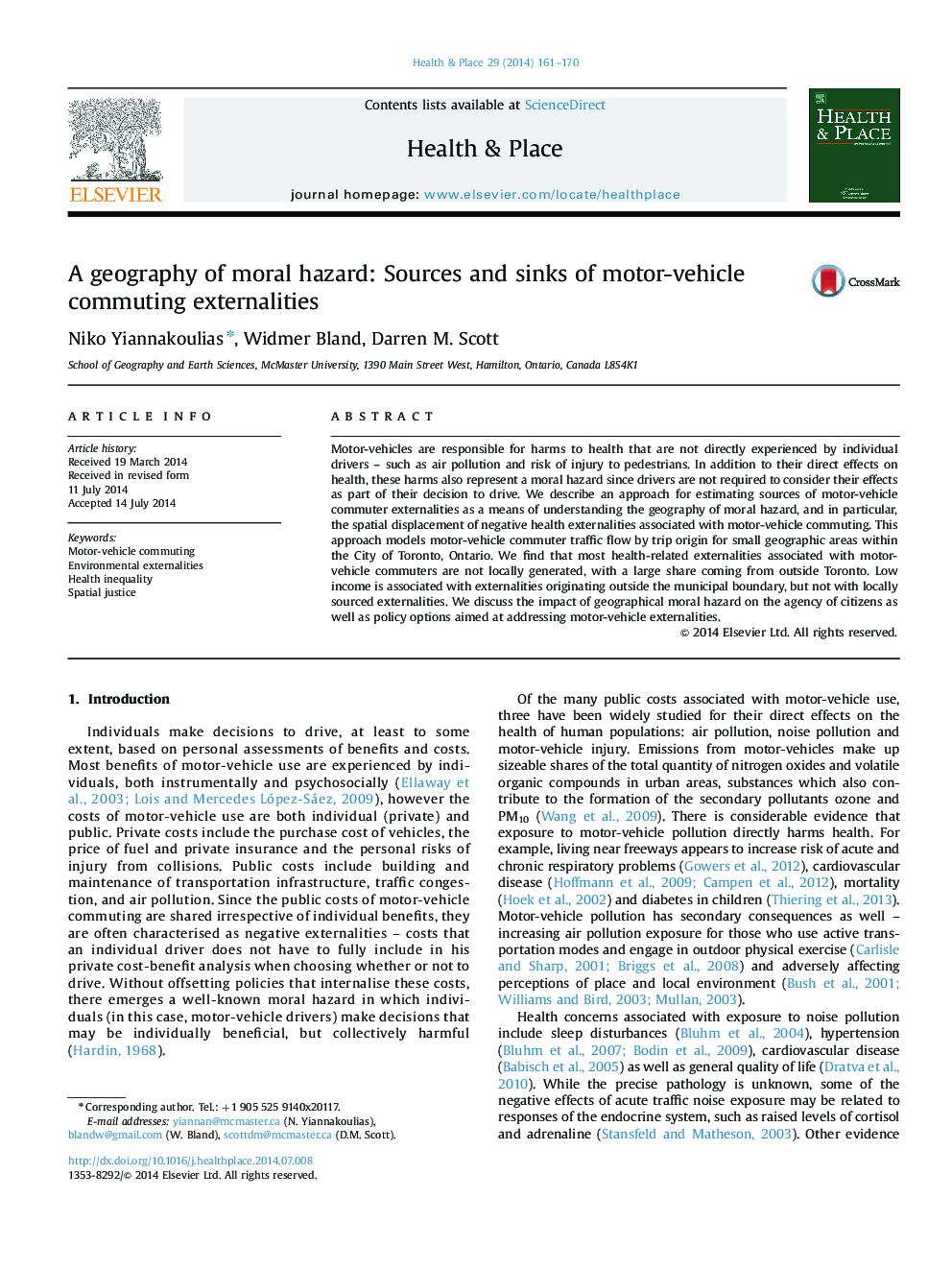| Article ID | Journal | Published Year | Pages | File Type |
|---|---|---|---|---|
| 7458488 | Health & Place | 2014 | 10 Pages |
Abstract
Motor-vehicles are responsible for harms to health that are not directly experienced by individual drivers - such as air pollution and risk of injury to pedestrians. In addition to their direct effects on health, these harms also represent a moral hazard since drivers are not required to consider their effects as part of their decision to drive. We describe an approach for estimating sources of motor-vehicle commuter externalities as a means of understanding the geography of moral hazard, and in particular, the spatial displacement of negative health externalities associated with motor-vehicle commuting. This approach models motor-vehicle commuter traffic flow by trip origin for small geographic areas within the City of Toronto, Ontario. We find that most health-related externalities associated with motor-vehicle commuters are not locally generated, with a large share coming from outside Toronto. Low income is associated with externalities originating outside the municipal boundary, but not with locally sourced externalities. We discuss the impact of geographical moral hazard on the agency of citizens as well as policy options aimed at addressing motor-vehicle externalities.
Related Topics
Health Sciences
Medicine and Dentistry
Public Health and Health Policy
Authors
Niko Yiannakoulias, Widmer Bland, Darren M. Scott,
